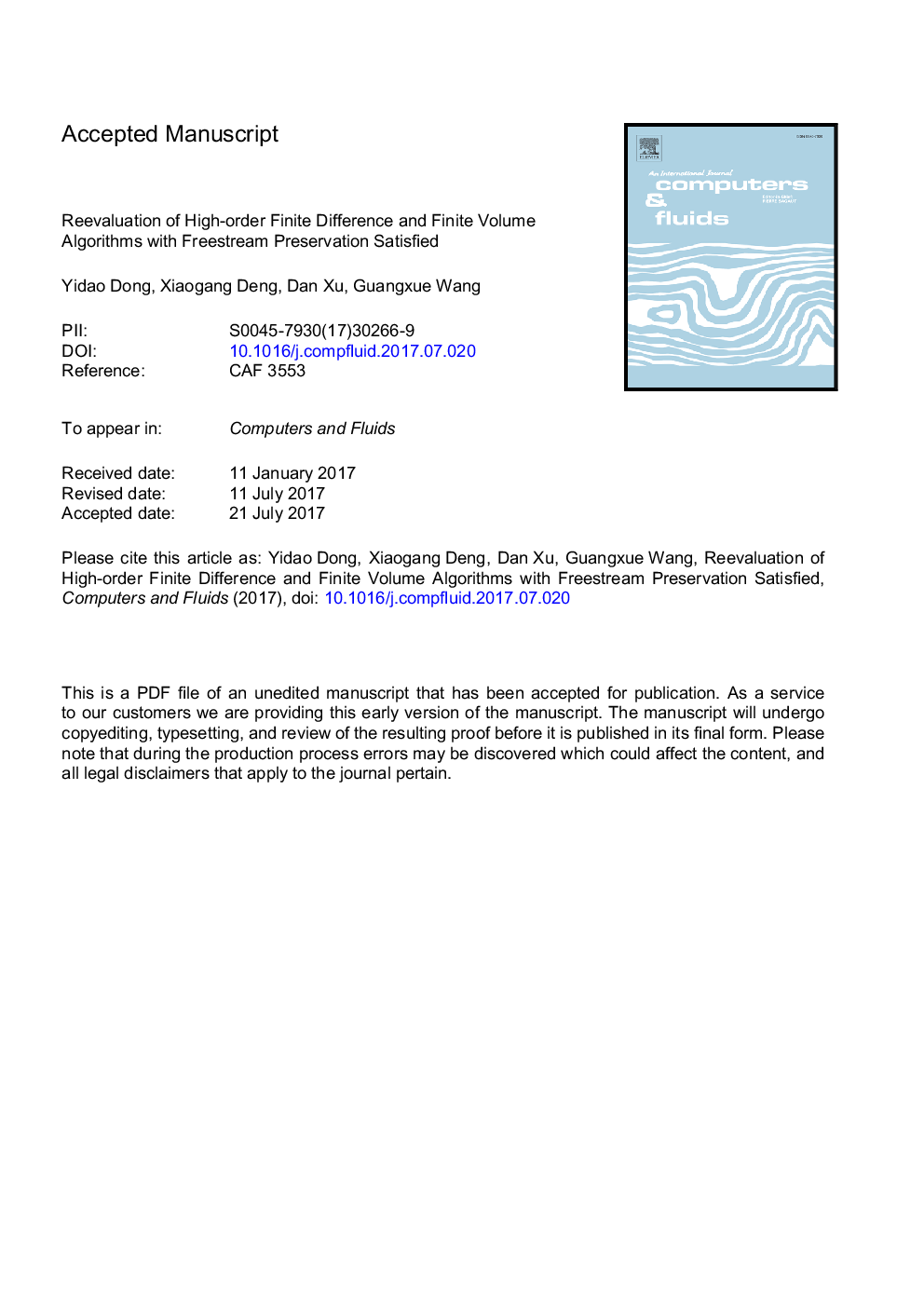| Article ID | Journal | Published Year | Pages | File Type |
|---|---|---|---|---|
| 5011762 | Computers & Fluids | 2017 | 20 Pages |
Abstract
High-order finite difference and finite volume algorithms based on the coordinate transformation, which satisfy the property of freestream preservation are reevaluated in this paper. The intent here is to modify the conclusion drawn by Casper etâ¯al. [28], who claimed that the finite volume implementation was less sensitive to derivative discontinuities. Therefore, for problems with complex geometries, it might pay to use the finite volume algorithm. In the present work, all the cases from Casper etâ¯al. are simulated with two advanced algorithms combined with weighting techniques and the importance of the freestream preservation is demonstrated through the comparison. It is concluded that the finite difference algorithm with the freestream preservation satisfied performs as well as the finite volume algorithm and the time consumption of high-order finite difference algorithms is remarkably lower than that of finite volume algorithms in multiple dimensions.
Related Topics
Physical Sciences and Engineering
Engineering
Computational Mechanics
Authors
Yidao Dong, Xiaogang Deng, Dan Xu, Guangxue Wang,
